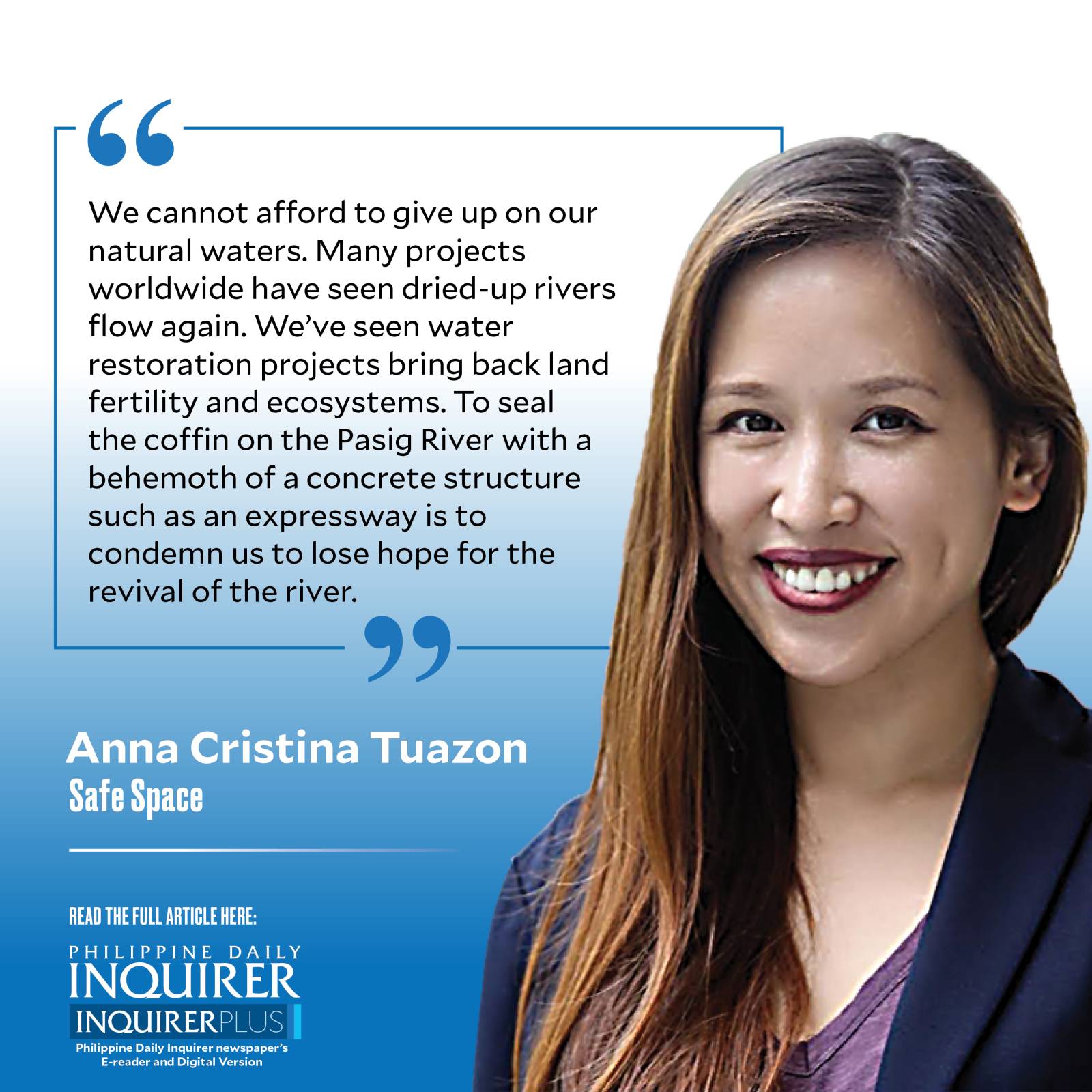[ad_1]
– 15 seconds ago

The Department of Environment and Natural Resources (DENR) certainly have their work cut out for them. Currently, there are 22 simultaneous reclamation projects in Manila Bay that will permanently change the ecosystem—or even the existence of the bay itself. How it got to this point without greater oversight by DENR escapes me. They claim that they are monitoring the situation and investigating noncompliance, but we know that business interests run much faster than oversight and regulation in this country. By the time they are finished “investigating,” it would already be too late as the damage has already been done. The cumulative impact of all these projects should have been determined prior to the start of these constructions. A quick look at Manila Bay now shows a starkly different seascape. We don’t even know the full extent of what it does to the ecosystem and how it impacts marine life in the bay. We also know any of the residential units being built there won’t be affordable to the average Filipino. So, who benefits from all this destruction of nature?
The environment impacts people’s mental health and well-being. Eco-anxiety is a relatively new phenomenon where there is significant fear of environmental catastrophe due to climate change that leads to hopelessness for the future. I see this anxiety come up for my young clients who worry that they may not have much of an earth left to inherit. This existential distress leads to hopelessness and meaninglessness, rendering them demotivated to engage in daily goals and tasks like school and work. Young adults get phobic at the thought of having children, worrying that they are subjecting their future offspring to misery. Parents actively dread the kind of life their children will have in such a polluted world, if the world will even last that long. Preserving Earth and its resources helps to maintain hope for a livable future.
How does one even begin to help one’s child with eco-anxiety? It is not easy. False assurances give little comfort and, worse, engender mistrust. We must acknowledge certain realities about what is happening in the world. At the same time, we must point to sources of hope to show that all is not lost. This is where government can help. We need signs that our government is committed to sustainable ecosystems. We need programs and projects that inspire us so that we can heal the earth.
Sadly, business and political interests tend to trump environmental interests. What is happening in Manila Bay is a clear sign of that. Another is the proposed Pasig River Expressway project, which would cover the entirety of the river with a six-lane highway. Despite not having yet been issued an environmental compliance certificate and with numerous petitions and protests by scientists and environmentalists, it has already solidified toll agreements and the then transport secretary has pledged full support. Ramon Ang of San Miguel Holdings Corp., one of the concessionaires of the project, justified that the river is “long dead.” During his administration, President Rodrigo Duterte abolished the Pasig River Rehabilitation Commission, stating that the river cannot be cleaned.
We cannot afford to give up on our natural waters. Many projects worldwide have seen dried-up rivers flow again. We’ve seen water restoration projects bring back land fertility and ecosystems. To seal the coffin on the Pasig River with a behemoth of a concrete structure such as an expressway is to condemn us to lose hope for the revival of the river.
If dredging up waste doesn’t seem to be making a dent, then perhaps it is time for other solutions instead of considering it unsolvable. Iloilo is a good example of how we can make use of mangroves to restore rivers. Solutions to the Pasig River don’t start at the river; it starts with people. What is the point of dredging if people continue to throw their waste in the river? Investing in good waste management among the poor communities along the river will go further than expensive dredges.
We also need to understand that reviving the Pasig River isn’t just for aesthetic purposes. Rivers provide life. It can bring back fish and other marine life, just like when my father remembers fishing there when he was a child. Bodies of water go hand in hand with fertile banks where parks and greenery can thrive, creating natural playgrounds and community spaces for our neighborhoods. These will also serve to cool our temperatures and mitigate floods. Roads by the river—not on top of it—make for wonderful bike paths and pedestrian trails. Economies thrive in riverbanks as well, as can be seen in Singapore and South Korea. Everyone wins with a river.
Let us not relegate environmental concerns as mere issues of a few activists. Everyone benefits from a sustainable environment. To give up hope in our environment is to give up hope for our people.
—————-
aatuazon@up.edu.ph
[ad_2]
Source link
